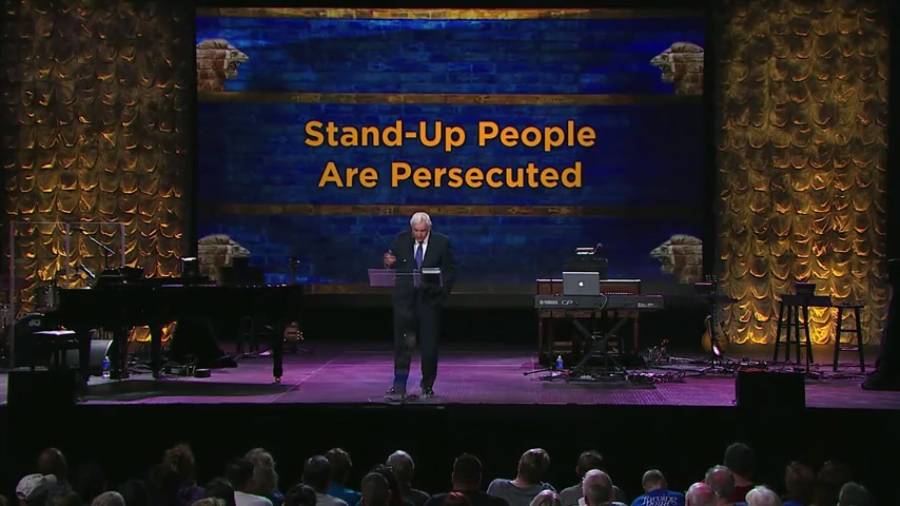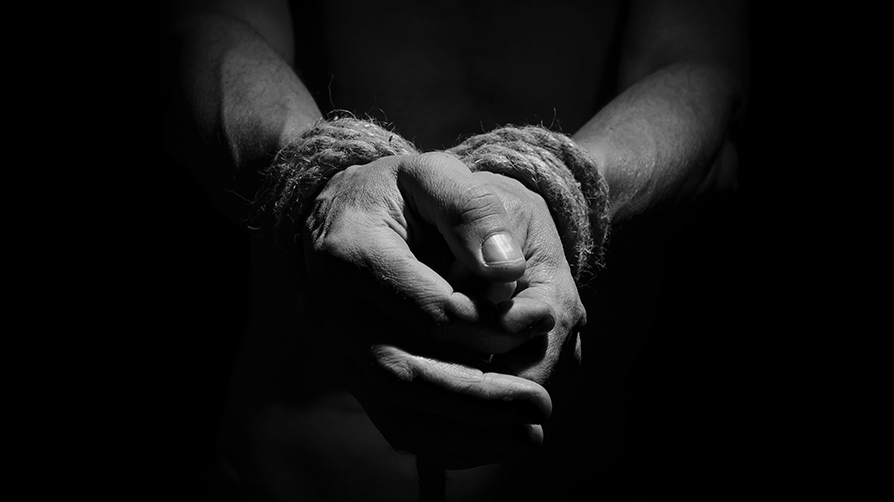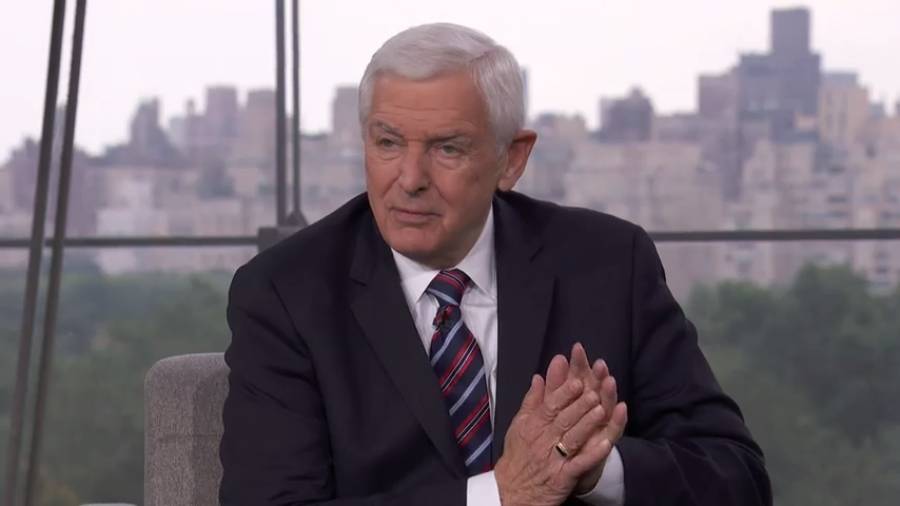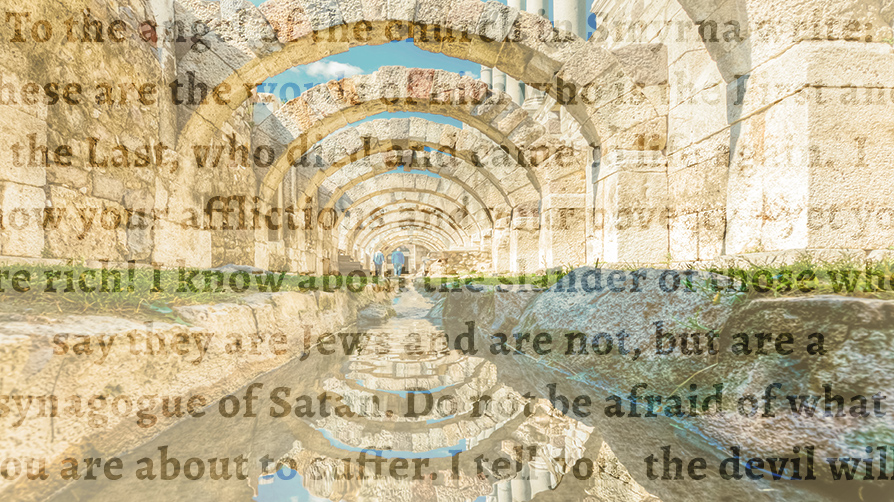

Dr. David Jeremiah Presents
Living inthe Ageof Signs
Online Destination

Living in the Age of Signs
Online Destination

Who? You!
Today’s Audio Devotion:
Who? You!
When Albert Einstein proposed his theory of relativity, it became an accepted fact that traveling into the future is possible but not into the past. That doesn’t stop Dr. Who. The famous fictional character is the star of the longest running science-fiction television series in the world. He can travel into the past as easily as into the future.
The best way to know the future for certain is to study biblical prophecy. You’ll know more than Dr. Who! God has unfolded a vast amount of information in Daniel, Ezekiel, Zechariah, Matthew 24, 1 and 2 Thessalonians, and Revelation. In fact, the entire Bible is one-fourth prophecy.
God has given us this top-secret information about the future for several reasons—to inform us, to reassure us, to encourage us, and, perhaps most importantly, to spur on our growth in holiness. We want to live in a way that glorifies Him, should He come today. Today, let’s remind ourselves that Jesus may come again before tomorrow’s sun rises and sets. And let’s live accordingly!
The end of creation is that the Creation might glorify [God]. Now what is glorifying God, but a rejoicing at that glory He has displayed?
Jonathan Edwards
Christians around the world are experiencing severe persecution. The consequences for professing faith in Jesus Christ range from stereotyping and marginalization in the West to enslavement and martyrdom in parts of the East. As unwelcome as it may be, persecution is not surprising. Jesus warned His believers, " 'A servant is not greater than his master.' If they persecuted Me, they will also persecute you" (John 15:20).
The strange truth about persecution is that it has an enigmatic effect: it strengthens the Church! In Romans 5, the apostle Paul encourages believers to "glory in tribulations, knowing that tribulation produces perseverance; and perseverance, character; and character, hope" (verses 3–4). History bears testimony to the fortifying effect of persecution. Consider the following statements from believers who faced persecution.
"We are hard–pressed on every side, yet not crushed; we are perplexed, but not in despair; persecuted, but not forsaken; struck down, but not destroyed—always carrying about in the body the dying of the Lord Jesus, that the life of Jesus also may be manifested in our body."
—The apostle Paul, persecuted believer in ancient Rome (2 Corinthians 4:8–10)
"I fear neither death nor fire. I am prepared for both, so do your worst!"1
—William Lithgow, tortured during the Spanish Inquisition
"They [messengers of the Gospel] must not fear men. Men can do them no harm, for the power of men ceases with the death of the body. But they overcome the fear of death with the fear of God. The danger lies not in the judgement of men, but in the judgement of God, not in the death of the body but in the eternal destruction of body and soul. Those who are still afraid of men have no fear of God, and those who have fear of God have ceased to be afraid of men. All preachers of the gospel will do well to recollect this saying daily."
—Dietrich Bonhoeffer, German pastor, hanged on April 9, 1945, for participating in a plot to kill Hitler2
"When people come close to each other, they see themselves in each other's eyes. In your eyes, I see myself. I used to be impulsive too. I used to rage and strike out at others with sharp words and selfish thoughts—until I learned what it means to love. When you're able to love, you're able to sacrifice yourself for the truth. Since I learned that lesson, my hands do not clench into fists."
—Sabina Wurmbrand, Romanian prisoner, 1945, addressing a deputy commandant at Jilava prison camp3
"I learned from [the communist guards]. As they allowed no place for Jesus in their hearts, I decided I would not leave the smallest place for Satan in mine. . . . God will judge us not according to how much we endured, but how much we could love."
—Richard Wurmbrand, imprisoned and tortured for fourteen years in Romania4
"He is no fool who gives what he cannot keep to gain what he cannot lose."
—Jim Elliot, martyred January 8, 1956
"I made it clear that I will consider—this is the important phrase I am trying to say—myself most fortunate if Jesus Christ will accept the sacrifice of my blood to raise the voice for the justice and rights of the persecuted and victimized Christians and other minorities in Pakistan."
—Clement Shahbaz Bhatti, assassinated in Islamabad in 2011 as a "blasphemer" of Muhammad
"I planned to kill my cousin, Your [God's] follower. But now I am prepared to give my life for You myself."
—Mostafa, Egyptian Christian convert from Islam5
"We are constantly on edge, but our faith has grown and we are more determined than ever to see Christians in the area stand strong and not compromise their faith in Jesus."
—Anonymous church leader from Central China, in response to escalating government persecution6
"My family and friends asked me to renounce Christ. When I didn't, much persecution followed, and my life was in danger. I had to flee."
—Masih, Hindu convert in India7
1John Foxe, Foxe's Christian Martyrs: The Powerful Abridged Classic (Uhrichsville, OH: Barbour Books, 2005), 44.
2Dietrich Bonhoeffer, The Cost of Discipleship (New York: Macmillan Publishing Company, 1963), 242.
3"Sabina: A Witness of Christ's Love," Hearts of Fire (Bartlesville, OK: VOM Books, 2015), 144.
4Richard Wurmbrand, Tortured for Christ (Bartlesville, OK: Living Sacrifice Book Company, 1998); 36, 39.
5"Modern–Day Paul: 'I Planned to Kill Him; Now I'm Prepared to Die for Jesus," https://www.opendoorsusa.org/christian–persecution/stories/modern–day–paul–i–planned–to–kill–him–now–im–prepared–to–die–for–jesus/>, accessed on February 27, 2009.
6"Chinese Church Leaders Vow: 'When One Is Arrested, Another Will Pick Up the Work," https://www.opendoorsusa.org/christian–persecution/stories/chinese–church–leaders–vow–one–arrested–another–pick–up–work/ , accessed on February 27, 2009.
7K.P. Yohannan, Revolution in World Missions (Wills Point, TX: gfa books, a division of Gospel for Asia), 146.










